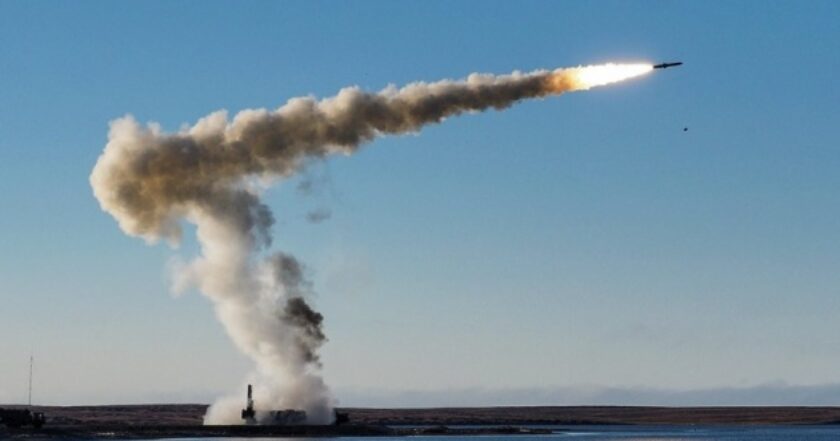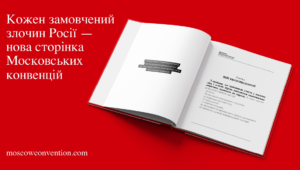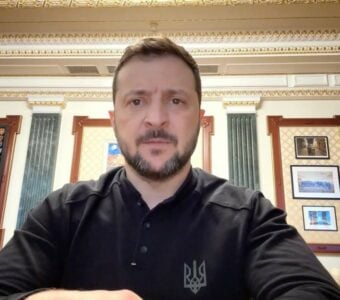Russia sources ballistic missiles abroad because they're more effective in evading air defense – ISW

Russia is stepping up its efforts to acquire ballistic missiles from abroad, as these missiles may be more effective in penetrating or evading Ukrainian air defense systems.
Analysts from the American Institute for the Study of War (ISW) said in their daily update that Russian forces regularly use short-range ballistic missiles to strike Ukrainian cities closer to the front line, and these missiles prove to be more effective in bypassing or evading Ukrainian air defense systems, Rubryka reports.
Ukrainian air defense intercepted 149 out of 166 reported Russian cruise missiles launched since December 29, 2023, but only managed to intercept a few ballistic missiles launched by Russia during the same period.
Russian forces have adapted S-300 and S-400 air defense missiles for ground strikes in Ukraine. Ukrainian officials acknowledged that their air defense is struggling to intercept these unconventional missile attacks, using their own S-300 and S-400 systems.
Ukrainian forces have been less successful in intercepting Iskander ballistic missiles during recent strikes, although they downed an Iskander-M missile during a less intense series of Russian missile strikes and drone attacks on December 30. Ukrainian forces thwarted all Iskander-M or S-300/S-400 missiles that Russian forces launched at Kyiv on December 12.
According to official reports, Ukrainian forces also intercepted all ten Kinzhal missiles launched by Russian forces on January 2 using Patriot systems. The effectiveness of Russian ballistic missiles partially depends on the configuration of the Ukrainian air defense system in the affected area and the impact complex, including missiles.
The relative success of Russian forces in striking targets in Ukraine with ballistic missiles combined with cruise missiles and drones may prompt Russia to intensify efforts to obtain ballistic missiles from abroad. Russia can produce approximately 42 Iskander missiles and four Kinzhal missiles per month, although it is unclear how many S-300/S-400 missiles Russia can produce.
Additionally, the Russian defense industry cannot manufacture ballistic missiles on the scale needed for a sustained campaign against Ukraine, relying on the regular use of a large number of ballistic missiles. Russia may be forced to source ballistic missiles from abroad if it intends to support extensive missile strikes against Ukraine.
Key findings from ISW as of January 4:
- Ukrainian military reported striking at least one Russian military target in occupied Crimea, while Russian officials and military bloggers claim the Ukrainian strike was unsuccessful.
- US National Security Council spokesperson John Kirby stated on January 4 that Russia has already launched ballistic missiles acquired from North Korea at targets in Ukraine and continues efforts to acquire similar missiles from Iran.
- Russia may intensify efforts to obtain ballistic missiles from abroad, as these missiles, under certain circumstances, prove to be more effective for hitting targets in Ukraine.
- US National Security Council spokesperson John Kirby, during a press conference on January 3, called recent reports by Western media about Russian President Vladimir Putin's readiness to enter peace talks with Ukraine "noise."
- Russian President Vladimir Putin signed a decree facilitating the procedure for granting Russian citizenship to foreign citizens in exchange for serving in the Russian military in Ukraine, likely part of ongoing efforts to compel migrants to serve in the Russian army.
- Kyrgyzstan sentenced a Kyrgyz citizen to five years in prison for participating in the war in Ukraine as part of the Wagner Group.
- Russia has started negotiations with Algeria, the United Arab Emirates (UAE), and Saudi Arabia on opening Russian cultural centers ("Russian House") abroad, likely aimed at strengthening Russian influence in the Middle East and North Africa.
- Russian forces have made confirmed advances near Kreminna and Avdiivka; positional fighting continues along the entire front line.
- Ukrainian sources reported that Russian authorities plan to mobilize Ukrainian teenagers residing in occupied Ukraine.
- Russian President Vladimir Putin, on January 4, signed a decree simplifying the procedure for certain Ukrainians to obtain Russian citizenship.





















































